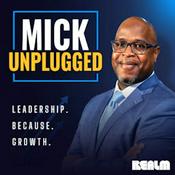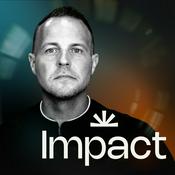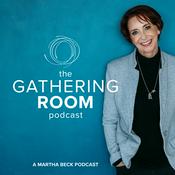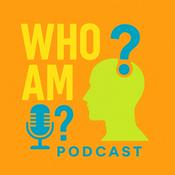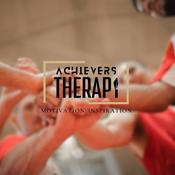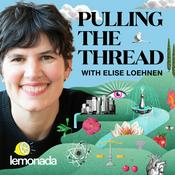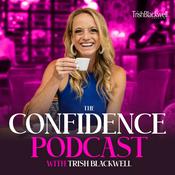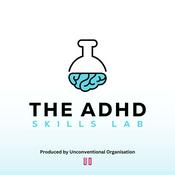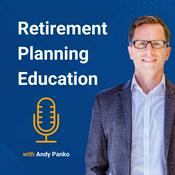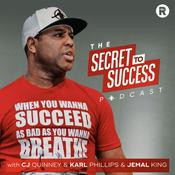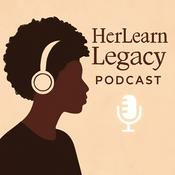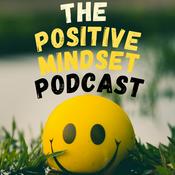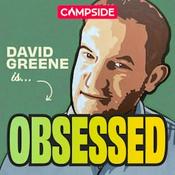62 episodes
37. The Slippery Slope Fallacy & How It Shows Up When Supporting Autistic Students
1/27/2026 | 50 mins.Grab your ticket to Coaching Week: Unlearning Control HERE!
In this episode, Nicole Casey explores the slippery slope fallacy, particularly in the context of child-led therapy and autism support. She discusses how the fear of losing control can lead to compliance-based approaches that hinder genuine connection and learning. By challenging these misconceptions, Nicole advocates for a more relationship-centered approach that honors children's autonomy while maintaining necessary boundaries. Through personal anecdotes and professional insights, she emphasizes the importance of rethinking rules and understanding the true nature of learning and communication.
takeaways The slippery slope fallacy is a cognitive distortion that assumes one small step will lead to a complete loss of control.
Control is often mistakenly equated with safety in educational settings.
Child-led therapy is about building relationships, not about permissiveness.
Honoring a child's autonomy does not mean abandoning structure or boundaries.
Many rules in educational settings may not serve the child's best interests and should be questioned.
The slippery slope fallacy can lead to harmful advice that restricts children's interests.
Personal experiences can help illustrate the impact of slippery slope thinking in parenting and education.
Boundaries in child-led therapy should be intentional and proactive, not reactive.
Rethinking compliance culture is essential for fostering genuine communication and connection.
Saying yes to a child's interests can lead to more meaningful learning experiences.
keywords: slippery slope fallacy, child-led therapy, compliance culture, boundaries, control, autism support, education, mental health, parenting, communication- Grab the free Rubric Quickstart here!
In this episode, Nicole Casey delves into the ongoing debate between pull-out and push-in therapy for autistic students in school settings. Drawing from her extensive experience, she discusses the effectiveness of both models, emphasizing the importance of individualized approaches and collaboration with teachers. Nicole shares personal anecdotes that highlight the impact of classroom environments on therapy outcomes and advocates for systemic changes to better support educators and students alike. The conversation encourages professionals to speak up and engage in meaningful discussions to improve therapy practices.
Takeaways
The debate between pull-out and push-in therapy is ongoing.
Individualized approaches are crucial for effective therapy.
Collaboration with teachers enhances therapy outcomes.
Classroom environment significantly impacts therapy effectiveness.
Advocacy is essential for systemic change in education.
Research supports both therapy models, but context matters.
Therapists should consider the child's needs first.
Burnout among teachers affects student support.
Effective therapy requires a supportive classroom environment.
Therapists must communicate barriers to administration.
Chapters
00:00 Introduction to the Debate
02:56 Exploring Pull-Out vs Push-In Therapy
05:03 Personal Experiences in Therapy Settings
08:35 Research Insights on Therapy Models
11:02 Individualized Approaches in Therapy
12:30 Collaboration with Teachers
13:23 Challenges in Push-In Therapy
14:07 Classroom Dynamics and Their Impact
20:02 Successful Collaborative Experiences
22:56 Understanding Burnout in Educators
27:08 The Effectiveness of Push-In Therapy
30:44 Advocating for Better Support
36:26 Finding Balance in Therapy Models
autism, therapy, education, push-in therapy, pull-out therapy, speech therapy, collaboration, classroom environment, individualized education, advocacy - Join the waitlist for my upcoming coaching week: Unlearning Control!
In this episode, Nicole Casey discusses the harmful effects of control in supporting autistic children, particularly through the lens of instructional control. She emphasizes the importance of building genuine relationships rather than relying on manipulative tactics that prioritize compliance over connection. Through personal anecdotes and critical analysis of common practices, Nicole advocates for a shift towards a child-led approach that fosters trust and autonomy.
Takeaways: The episode addresses the harmful effects of control in autism support.
Nicole emphasizes the need for genuine relationships over manipulation.
Instructional control is framed as a way to gain compliance from autistic children.
Control can lead to a lack of trust and autonomy in children.
The concept of pairing is critiqued as a manipulative tactic.
Compliance is often prioritized over authentic communication.
Real connection does not require control or manipulation.
Nicole shares personal experiences to illustrate her points.
The episode calls for a shift towards child-led approaches.
Mindset is crucial in fostering a supportive environment for autistic children. - Grab the FREE Quickstart to Rubric-Goal Writing resource here!
In this conversation, Nicole Casey discusses her journey with goal writing, particularly for autistic students. She shares her struggles with traditional goal writing methods and introduces rubric-based goals as a more effective alternative. The discussion emphasizes the importance of mindset shifts in approaching goal writing, the need to question established norms, and the significance of aligning goals with personal and professional values. Nicole encourages educators and therapists to embrace new methods that better serve their students and themselves, ultimately leading to a more fulfilling and effective practice.
Takeaways
Goal writing can be challenging for many professionals.
Rubric-based goals provide a clearer framework for writing effective goals.
Mindset plays a crucial role in how we perceive our abilities as goal writers.
It's important to question traditional methods and seek better alternatives.
Communication should be viewed as a personal expression, not just a metric of accuracy.
Professionals are often not given the right tools for effective goal writing.
Embracing ease in goal writing can lead to better outcomes for students.
Collaboration and feedback from peers can enhance goal writing practices.
Aligning goals with personal values can reduce burnout and increase job satisfaction.
Educators should advocate for individualized approaches to goal writing.
Chapters
00:00 The Struggle with Goal Writing
10:37 Mindset Shifts in Goal Writing
22:16 Questioning the Status Quo
36:55 Aligning Goals with Values
goal writing, rubric goals, autistic students, mindset shifts, education, therapy, communication, child-led approach, professional development, IEPs - In this episode, Nicole Casey discusses the challenges faced by speech-language pathologists (SLPs) when supporting autistic students, particularly the difficulty of starting communication support without knowing the child well. She emphasizes the importance of a structured approach to identify key communication functions, such as asking for help, protesting, and directing actions. Nicole advocates for a child-led approach that empowers students to communicate authentically and autonomously, moving beyond traditional methods that may hinder their development. The conversation highlights the significance of rubrics in goal setting and the need for a supportive environment that fosters trust and communication.
Takeaways
The system has flaws that impact how we support autistic students.
It's challenging to write an IEP without knowing the child.
A structured approach can simplify the process of supporting communication.
Starting with requesting is common but not always the best approach.
Protesting is a crucial skill for safety and autonomy.
Communication should empower the child, not just be a performance.
Directing actions helps children feel powerful in their communication.
Child-led approaches foster authentic communication.
Rubrics can help target a variety of communication skills.
Building a communication ecosystem is essential for growth.
Chapters
00:00 Navigating the Challenges of Supporting Autistic Students
05:18 The Importance of a Systematic Approach
20:07 Identifying Key Communication Functions
23:37 Rethinking Strategies for Asking for Help
28:17 Creating Supportive Environments for Communication
39:37 The Importance of Protesting and Rejecting
46:05 Empowering Children Through Directing Actions
48:28 The Role of Requesting in Communication
56:04 Building a Communication Ecosystem
autism, communication, support, IEP, SLP, rubrics, child-led approach, education, special education, neurodiversity
More Education podcasts
Trending Education podcasts
About Let Them Lead: The Child-Led Autism Podcast
Hosted by Nicole Casey, speech-language pathologist and founder of The Child-Led SLP, Let Them Lead is the go-to podcast for professionals and caregivers who want to support autistic kids with respect, trust, and connection.
Each week, we explore child-led, neuroaffirming approaches to communication, play, and therapy—centered around the belief that autistic kids deserve communication partners who honor and support them holistically. Whether you're navigating gestalt language processing, AAC, sensory differences, or just want to break free from compliance-based systems, you're in the right place.
You'll hear honest conversations, practical strategies, and plenty of real-life examples to help you unlearn old habits and confidently support the kids you love or work with. No behavior charts. No rigid protocols. Just curiosity, compassion, and the freedom to follow your autistic child's lead.
Podcast websiteListen to Let Them Lead: The Child-Led Autism Podcast, Digital Social Hour and many other podcasts from around the world with the radio.net app
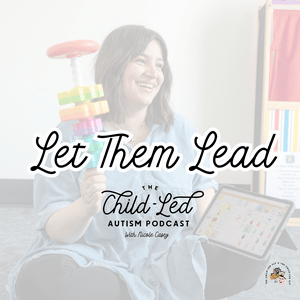
Get the free radio.net app
- Stations and podcasts to bookmark
- Stream via Wi-Fi or Bluetooth
- Supports Carplay & Android Auto
- Many other app features
Get the free radio.net app
- Stations and podcasts to bookmark
- Stream via Wi-Fi or Bluetooth
- Supports Carplay & Android Auto
- Many other app features


Let Them Lead: The Child-Led Autism Podcast
Scan code,
download the app,
start listening.
download the app,
start listening.


